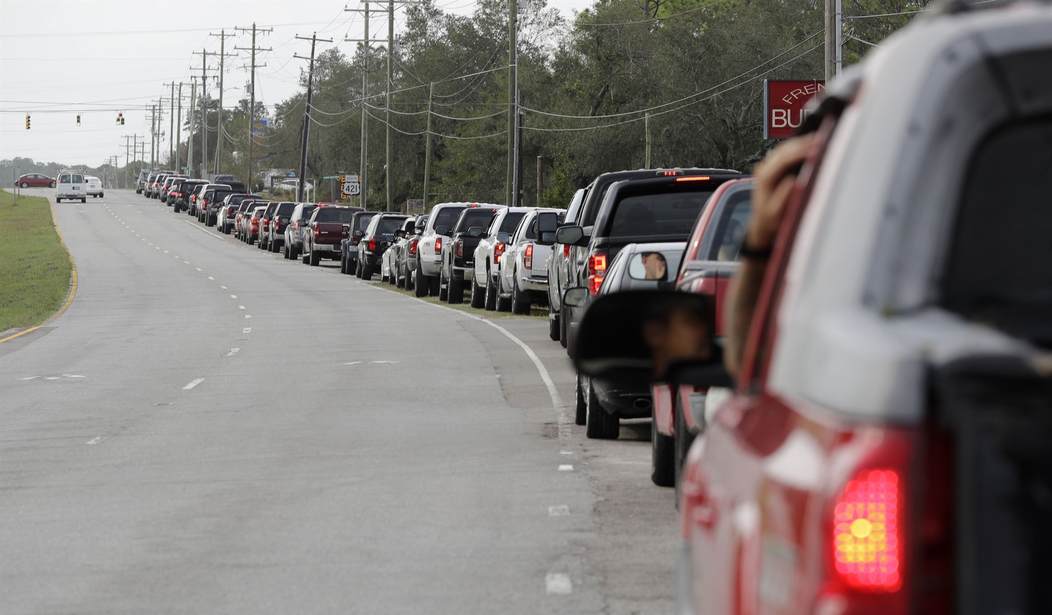As a resident of Louisiana who depended on AM radio for critical information during Hurricane Katrina and so many other major storms, I couldn’t be happier to see the House of Representatives getting ready to pass a bill that will keep this life saving device safe from automaker interference.
On Monday, Rep. Cathy McMorris Rogers’ House Energy & Committee announced that it will hold a full committee vote on the AM Radio for Every Vehicle Act tomorrow. Once the legislation receives the committee’s blessing, it will only be a matter of time before Speaker Mike Johnson (a co-sponsor of the bill) and House Majority Leader Steve Scalise call it up for a full vote in the U.S. House of Representatives.
Senators Ted Cruz (R-TX) and Ed Markey (D-MA) have introduced the same legislation in the Senate, which has already received near unanimous approval by the Senate Commerce Committee and amassed a filibuster-proof majority of co-sponsors because Democrats and Republicans agree that protecting public safety should not have partisan affiliation.
I can attest from firsthand experience that automakers removing AM radios from their vehicles is a significant public safety issue.
During Hurricane Katrina, my cell phone and Internet connection went completely dark. If it wasn’t for AM radio, I would have had no way of receiving the storm updates that I needed to keep my family safe amid a deadly hurricane.
I was not alone. General Russel Honoré, who spearheaded the recovery efforts for Hurricane Katrina, recently stated that “during Katrina, AM radios were critical to our ability to save thousands of lives and bring order and peace back to Louisiana and the larger Gulf Coast.” This was the case because at “many times during this disaster, it was the only communication method that was not out of commission for tens of thousands of storm victims.”
Recommended
Its resiliency was a godsend for hundreds of thousands of Hurricane Katrina victims.
General Honoré continued: “When the power was out and other communications platforms failed, emergency management teams were able to use AM radio signals to locate, communicate with and rescue stranded civilians. They were also able to connect storm victims with locations to obtain food, water, shelter and reconnect missing family members. We truly couldn’t have done our jobs without it.”
That is why, on August 29, 2024, the 19th anniversary of Hurricane Katrina, General Honoré led nearly two dozen Louisiana public safety officials in sending a letter to congressional leadership asking them to ensure the AM Radio for Every Vehicle Act becomes law before the year’s end.
I am heartened by, but not surprised to see, House Energy & Commerce Committee Chair Cathy McMorris Rogers responding so quickly to the urging of these experts by speedily calling up the bill for a markup. After all, AM radio has protected her home state of Washington just as effectively as it did for us in Louisiana during Hurricane Katrina and many other disasters.
Last year, The Seattle Times wrote, “Our response to the wildfires of 2015, the great floods of 2017 and the 2018 windstorm proved our need for (and the effectiveness of) our radio alert system. It ensured that thousands of Washingtonians did not get left in the dark when they most required a helping hand.”
Those who recently found themselves caught in the Maui wildfires and a slew of other recent emergency situations depended on AM radio just as much.
In fact, according to every former administrator of the Federal Emergency Management Agency (FEMA), from the Clinton through Trump administrations, when disasters or scares have overwhelmed a given region’s power grid and cell networks, AM radio has often been the only communication method left standing. This is why all these FEMA leaders have similarly urged Congress to pass the AM Radio for Every Vehicle Act.
While Democrats and Republicans disagree on the existence of some government subsidies, they all concur that companies that accept such funding awards should not jeopardize public safety. And that’s what makes the decision of some automakers to remove AM radios from their vehicles so egregiously wrong. These companies have accrued billions in government subsidies over the last few years, yet they have refused to listen to the bipartisan choir of public safety leaders who have implored them to leave AM radios in their vehicles.
By moving so quickly to pass the AM Radio for Every Vehicle Act, Congress is doing what’s necessary to fix this problem. I’m heartened to see the bold, bipartisan action and I’m looking forward to seeing congressional leaders calling it up for a full congressional vote for the entire House of Representatives in the coming weeks.
I think I speak for everyone when I say that, at a time when we’re approaching election day, and the nation seems like it couldn’t be more divided — it’s quite relieving and refreshing to see both parties working together to solve a problem for the American people. This is what public service is all about, and its proof that our government leaders can still provide valuable assistance to their constituents.

























Join the conversation as a VIP Member